Posted on
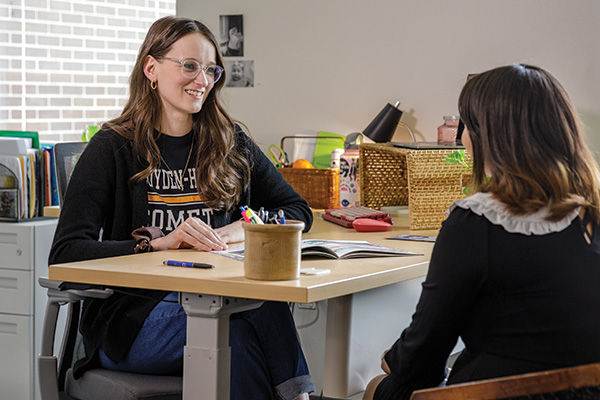
Every day, school counselors show up as listeners, encouragers, problem-solvers, and advocates for students who need someone in their corner. During National School Counseling Week, we pause to recognize the life-changing impact these professionals have on students’ academic success, personal growth, and future goals.
School counselors are the steady presence in the middle of a student’s storm. They help a first grader navigate big emotions, guide a middle schooler through friendship struggles, and support a high school senior making decisions that will shape their future. Their work may not always be visible, but its influence lasts a lifetime.
In a world where students face increasing academic pressures, mental health challenges, and social complexities, school counselors serve as a crucial bridge between students, families, and educators.
Advocates, Leaders, and Difference-Makers
School counselors are advocates who work behind the scenes to ensure every student — regardless of background or circumstance — has access to opportunities and support. They collaborate with teachers, administrators, and families to create school environments where students feel safe, valued, and heard. Their impact goes beyond graduation rates or test scores. Counselors help students believe in themselves, see possibilities for their future, and develop the skills they need to thrive in life.
A Calling That Changes Lives
For many school counselors, the profession is more than a job — it’s a calling. It requires compassion, cultural awareness, strong communication skills, and a deep commitment to student well-being. It’s challenging work, but it’s also incredibly meaningful.
As we celebrate National School Counseling Week, we thank the counselors who show up every day ready to listen, guide, and uplift the students who need them most. Schools are stronger because of you, and students’ lives are better because you chose this path.
Inspired to Make a Difference?
If you feel called to support students’ academic, career, and personal growth, a career in school counseling offers the chance to create lasting impact every single day.
Northwestern College’s M.A. in School Counseling program is designed to prepare compassionate, skilled professionals to serve students in K–12 settings. Through a blend of practical experience, expert faculty mentorship, and a strong ethical foundation, the program equips future counselors to meet the complex needs of today’s students with confidence and care.
Because one caring adult can change a student’s story — and that adult could be you.
Posted on

A new semester brings fresh opportunities—new goals, new classes, and new momentum. Whether you’re returning to your program or starting as a new student, the start of a new term is the perfect time to reset, refocus, and recommit to your academic journey.
Online learning offers flexibility and independence, but success doesn’t happen by accident. It’s built through intentional habits, strong organization, and a willingness to engage. Here are practical, proven strategies to help you thrive this semester—no matter where you are in your program.
1. Start With Clear Goals
Before coursework ramps up, take time to define what success looks like for you this semester. Write your goals down—whether it’s maintaining a certain GPA, staying on top of weekly assignments, or balancing school more effectively with work and family. Clear goals give purpose to your daily efforts. Ask yourself:
- What do I want to accomplish academically?
- How does this semester move me closer to my long-term goals?
- What challenges did I face last term, and how can I address them now?
2. Create a Consistent Weekly Schedule
One of the biggest advantages—and challenges—of online learning is flexibility. Structure is key. Consistency reduces stress and helps prevent last-minute cramming, especially when multiple deadlines overlap.
- Block out dedicated study times each week
- Treat online coursework like an in-person class commitment
- Schedule time for reading, discussions, assignments, and exam prep
- Build in buffer time for busy weeks
3. Stay Organized From Day One
Getting organized early sets the tone for the entire semester. Staying organized allows you to focus more energy on learning—and less on scrambling.
- Review all syllabi in the first week
- Add important deadlines to a digital or paper calendar
- Create folders (digital or physical) for each course
- Track discussion posts, quizzes, and major assignments
4. Engage Actively With Your Courses
Online learning is most effective when you’re an active participant. Engagement deepens understanding and helps you feel more connected—to the content, your classmates, and your instructors.
- Log in regularly, even on non-assignment days
- Participate thoughtfully in discussion boards
- Ask questions when concepts aren’t clear
- Connect course material to real-world experiences
5. Communicate Early and Often
You are not alone in your online program. Faculty and support staff want you to succeed—but communication matters. Proactive communication builds confidence and prevents small issues from becoming bigger obstacles.
- Reach out to instructors with questions or concerns
- Ask for clarification before deadlines pass
- Notify instructors early if challenges arise
- Take advantage of academic support services
6. Balance School, Life, and Well-Being
Many online students juggle coursework alongside careers, families, and other responsibilities. Balance is essential. Remember: consistency matters more than perfection.
- Set realistic expectations for yourself
- Break large assignments into manageable steps
- Protect time for rest, exercise, and personal commitments
- Celebrate progress, not just final outcomes
7. Stay Connected to Your “Why”
Whether you’re pursuing a degree to advance your career, serve others, or reach a personal milestone, your “why” matters. When motivation dips—as it sometimes will—pause and reflect on:
- Why you started this program
- Who you’re doing this for
- How far you’ve already come
A Fresh Start for a Successful Semester
The new semester is a chance to begin again—with clarity, confidence, and renewed purpose. Online learning requires discipline, but it also offers incredible opportunity. By staying organized, engaged, and connected, you can make this semester one of growth and success.
Welcome back, and best wishes for a rewarding and successful spring term.
Posted on
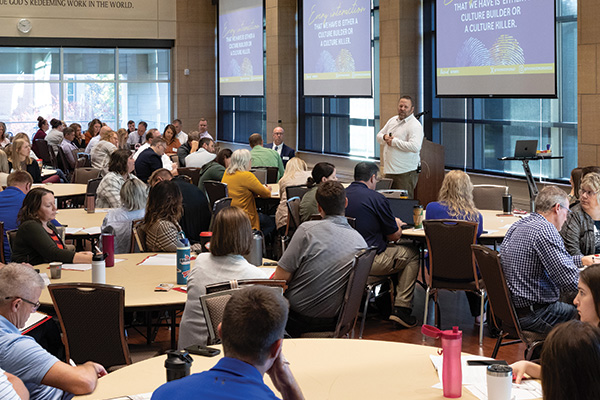
What to Expect
On Tuesday, October 21, 2025, Northwestern College’s Graduate & Professional Studies Division is proud to host the annual Leadership in Education Conference, themed Rooted in Culture, Rising in Success. This full-day professional development event (8:20 a.m. – 3:45 p.m.) brings together K–12 leaders, administrators, instructional coaches, and teacher leaders for a day of inspiration, strategy, and networking.
Why This Conference Matters Now
The educational landscape is changing quickly. From the growing importance of school culture to the rise of AI, data use, inclusive practices, and crisis leadership, leaders need more than theory, they need practical strategies grounded in real challenges. This conference is designed to bridge that gap.
By focusing on culture, behavior systems, AI and data, and leadership in adversity, the conference offers a well-rounded set of sessions that help you lead in today’s context while equipping you for tomorrow.
Featured Speakers & Sessions
Keynote: The Power of a Positive Culture — Dr. Jared Smith
Dr. Smith, Superintendent of Waterloo Community Schools, will open with a dynamic talk about how a strong culture underpins successful organizations. You’ll leave with concrete ideas for reinforcing a positive climate in your school or district.
He also leads two breakout sessions:
- Culture-Building for Leaders: strategies for administrators to model and sustain culture
- Culture-Building for All: how every staff member can contribute to a culture of respect and collaboration
More breakout sessions you won’t want to miss:
- Positive Approach to Student Success (PASS): Terry Hemann & Jackie Christensen present a behavior support model that integrates individualized instruction and data-driven coaching.
- Reaching All Students: Universal Design for Learning (UDL): Dr. Heather Hayes and Ashley Stanislav focus on inclusive strategies that meet the full range of learners.
- Administrative Uses of AI–Maximizing the Power of Data: Sandy Groom-Meeks will dive into how AI tools can support decision making, pattern recognition, and freeing leaders from data overload.
- Shared Instructional Leadership: Lessons from Experience: Jill Hulshoff and Chelsey Kurtzleben will share stories and mindsets behind distributed leadership in schools
- Artificial Intelligence in the Classroom–The Next Chapter: Practical use of AI in instruction, assessments, student support, and ethical considerations.
- Leadership Lessons Learned in a Trying Year: District leaders from Rock Valley (Matt Van Voorst, Noah DeYager, Nicole Roder) will reflect on crisis leadership following severe flooding and what it taught them about resilience, adaptability, and community.
- Closing Session: Creating a Culture of Excellence: Matt McCarty (Northwestern’s head football coach) will tie together themes of leadership, culture, and sustainable success.
What You’ll Walk Away With
- Actionable strategies you can apply immediately in your school or district
- Stronger understanding of how to harness culture as a lever for improvement
- Fresh perspectives on AI, data, and inclusive practices
- Insight into leading under pressure and in uncertain times
- Networking with fellow leaders, sharing challenges, ideas, and encouragement
Who Should Attend
This conference is ideal for:
- Building-level administrators (principals, assistant principals)
- District leaders and curriculum directors
- Instructional coaches or leaders responsible for culture or professional learning
- Aspiring administrators or teacher leaders looking to expand their leadership capacity
Logistics & Registration Reminder
Don’t forget: Registration closes October 15. Be sure to explore add-on credit options (license renewal, graduate credit, or micro-credential) when you register.
If you have questions, you can reach out to the Graduate & Professional Studies office at [email protected] or 712-707-7388.
Posted on

At Northwestern, your success matters to us, not just in the classroom, but throughout your entire academic journey. We’re excited to announce that we now have a student success specialist dedicated to providing additional academic support for our online undergraduate and graduate students. In addition to the guidance you’ll receive from your academic advisor, our student success specialist provides an added layer of support. Choosing an online degree program is about more than convenience, it’s about knowing you’ll have the support you need to succeed.
Our student success specialist is here to walk alongside you as you navigate the demands of online learning providing personalized academic coaching that focuses on:
- Building strong study habits
- Staying organized
- Managing your time effectively
Whether you’re balancing coursework with a job, family, or other commitments, our student success staff will help you find strategies that work for your unique situation. This means that as a Northwestern online student, you won’t be left on your own to “figure it out.” Instead, you’ll have a professional resource invested in your success, ensuring you have the tools and strategies to thrive. And when additional help is needed, such as tutoring, you’ll be connected with the right support.
Take the Next Step Toward Success
This is more than just an added feature, it’s a reflection of our mission. At Northwestern, your success matters to us. Our student success specialist is just one example of the intentional, personalized support that makes our online programs Stand Out.
Your goals. Our support. Explore our online programs here.
Posted on
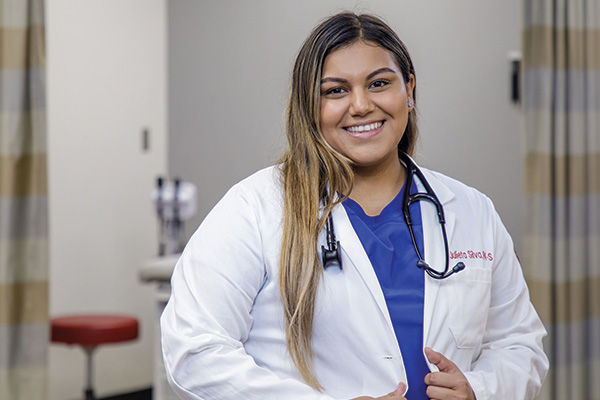
What to Expect on Your Interview Day
As the PA program enrollment counselor here at Northwestern College, one of my favorite parts of this role is walking alongside applicants during the interview process. If you’ve been invited to interview, congratulations, it truly is a privilege. Each year, our program receives many applications, and only the most competitive candidates are invited to campus. This means that by the time you step into your interview day, you’ve already distinguished yourself through your hard work, preparation, and experiences.
At the same time, we encourage you to approach this day with humility. Our program is unique in its mission: to equip physician assistants who will serve patients in rural and underserved communities. Your journey to becoming a PA is more than academics, it’s about growing in knowledge, faith, and service. We view this profession as a way to bring healing and hope to the communities you’ll serve. We are looking for students who not only demonstrate strong academic and interpersonal skills but who also understand the heart of our program, training providers who will make a difference where they are most needed. This training starts on day one at orientation, continues through the didactic terms, and is reinforced during clinical rotations.
When Interviews Happen
Invitations to interview are sent between mid-August and mid-September. For the 2025 cycle, our interview dates are:
- September 5
- September 12
- September 26
Once you’ve received your invitation, you’ll also get a detailed schedule of what to expect on your interview day.
What the Day Looks Like
On your interview day, you’ll participate in both individual and group interviews. This is our opportunity to get to know you beyond your application and for you to learn more about us. We’ll be assessing qualities that go far beyond test scores, such as:
- Your understanding of the PA profession and of the Northwestern College PA Program
- Interpersonal skills and how you work with others
- Your commitment to learning and growing
- Self-awareness and emotional maturity
- Critical thinking and problem-solving abilities
- Cultural competency and respect for diverse backgrounds
Our Encouragement to You
We know interviews can feel intimidating, but we want you to see this day as a conversation, not an exam. Come prepared, but also come ready to be yourself. We want to see your passion for the PA profession, your heart for serving others, and your openness to learning.
Remember, this is also your chance to interview us. Ask questions, get a feel for our culture, and imagine yourself in a program deeply committed to preparing rural providers who will meet real needs in communities across the country.
A Final Word
Being invited to interview is an accomplishment worth celebrating. But it’s also just one step in a meaningful process. Stay humble, stay curious, and know that we are genuinely excited to meet you. We are praying for you as you prepare, and we look forward to seeing how your gifts and faith can impact the world through medicine.
We can’t wait to welcome you to campus this September!
About the Author
Since 2023, Anna Mae has served as the Enrollment Counselor for Northwestern’s PA program. With a background in Secondary Education, she is passionate about education and about guiding prospective students through the PA application process.

Posted on
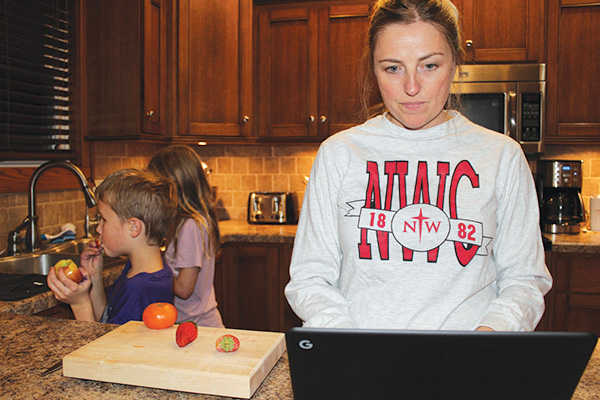
Your Graduate Journey, Reimagined: What Makes Northwestern Different
When you decide to pursue graduate education, you’re not just choosing a degree program, you’re choosing the people and the community who will walk alongside you on your journey. At Northwestern, we’re intentional about creating an experience that’s different: one that’s personal, supportive, and rooted in values that shape not only your career but your life. Graduate school doesn't mean putting everything else on hold. Our online programs are built to fit into your busy life, making it possible to keep moving forward.
A Personal Guide from Day One
From the moment you inquire about one of our programs, you’ll be connected with an enrollment counselor who is with you every step of the way. What makes Northwestern unique is that your counselor doesn’t just help you apply, they continue as your academic advisor throughout your program. They’ll know your goals, cheer for your successes, and help you navigate challenges all the way through graduation.
Faculty Who Teach, and Care
Our faculty members are leaders in their fields, bringing real-world expertise and research into the classroom. But beyond their credentials, they’re mentors who care about your growth. They’ll challenge you academically while offering the support you need to thrive.
A Christian Academic Community
At Northwestern, faith is not separate from learning, it shapes it. We believe graduate education should not only prepare you to excel in your profession, but also to live out your calling with integrity and purpose. You’ll be part of a supportive community that values both excellence and character.
Leadership Development at the Core
Whether you’re preparing to step into a new role, expand your influence, or serve others in a deeper way, leadership is woven into every program. We want you to graduate not just with knowledge, but with the skills and confidence to lead with vision and compassion.
Your Next Step
Graduate education is a big decision, but it doesn’t have to be overwhelming. At Northwestern, you’ll never walk the journey alone. With a dedicated advisor, expert faculty, a community of faith, and a focus on leadership growth, your graduate experience will be as personal as it is transformative. With no application fee for online programs and new courses starting every 8 weeks in most programs, getting started has never been easier.
Prepare to lead with purpose. Explore our graduate programs today.
Posted on
Let's take time to pause during Teacher Appreciation Week to consider the profound calling and vital work of our teachers. In a rapidly evolving world, their dedication extends beyond the transmission of rote knowledge; it reflects a commitment to nurturing the hearts and minds of the young people entrusted to their care.
Our teachers navigate a complex landscape, integrating new technologies and addressing the diverse needs of their students. They are not merely instructors; they are often the hands and feet of compassion, offering guidance, social and emotional support, and a steady presence in a world that can feel increasingly uncertain.
It's also vital to acknowledge something profound: teaching is a uniquely human endeavor that AI cannot replicate. Our teachers are instrumental in fostering not only intellectual development but also character, resilience, and a sense of purpose. They are planting seeds of wisdom and truth in order to cultivate a harvest of thoughtful and engaged citizens. They are preparing students for a future we can only begin to imagine.
Therefore, our appreciation must be rooted in a respect for their vocations and more than a fleeting observance. Let it be a consistent outpouring of prayer, support, and gratitude, recognizing the profound responsibility and sacred calling they embrace as they shape the next generation within our community. May we, as people of faith, be a source of strength and encouragement for them in this vital work.
At Northwestern College, we believe that honoring teachers means equipping them for longevity, growth, and leadership in their calling. Our fully online Master of Education programs are designed to support educators at every stage of their journey—whether deepening classroom practice, stepping into new areas of leadership, or responding to the evolving needs of today's learners. As we celebrate Teacher Appreciation Week, we reaffirm our commitment to empowering those who shape the future, one student at a time. Explore our M.Ed. programs here.
Posted on
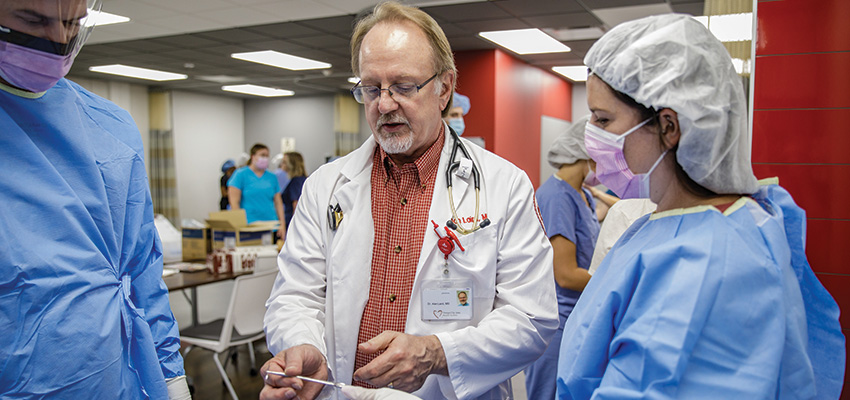
I have had the privileged of watching several PA classes being transformed from laypersons to professionals ready to enter practice. That is not to say they have learned all they need to know; even 4 years of medical school can’t do that. But they are ready to become part of a healthcare team and enter their respective area(s) of practice. There they will have another learning curve of 5 – 7 years to be “comfortable” in all they do.
So, what is it like to be a PA-S (student) and be “transformed”? Of course it is different for each person. But the best analogy I can come up with is the chrysalis of a butterfly. Yes, it may be an over-used example. It certainly does not apply to just becoming a PA-C (clinician). And I have no idea how much self-awareness the caterpillar has in its transition; but I do think it is helpful to think.
You probably remember the process from a grade school experiment. The caterpillar, after reaching maturity, picks a branch, attaches itself, forms the chrysalis and eventually emerges looking quite different. So too, the PA student is admitted to a school, settles in, and begins the change process.
Remember watching that hanging object, day after day, wondering when and if the emergence would take place? At that young age we were not aware of what was going on inside. It seemed like nothing was happening! But, a study of the process, reveals a lot is happening. Parts are being catabolized (broken down and digested) for anabolism (the growth of new structures). The chrysalis is a cramped space. Because of the breakdown and growth, it must be hot. I suspect all that change hurts (if caterpillars / butterflies feel pain). It certainly can’t be comfortable. And so, the PA student in their classroom and study-time chrysalis, learns to apply old knowledge, to acquire and grow new knowledge, and turn that knowledge into wisdom with application. Things have to be connected to understand the human body as a whole. And then they must be connected again in new ways to understand a disease processes and how it affects the body in individual systems and as a whole. Trust me, that is not comfortable. The brain can feel cramped as it is “expanded” every day with new knowledge. Time that once was leisure or recovery time, becomes study time. The previous life becomes “consumed” to make room for a new life as a provider of medical care. It may look like “just going to school”, but there is a whole lot more going on. And just like the change from caterpillar to butterfly doesn’t take a break until the new organism emerges, neither does PA school. We were warned not to “help” the butterfly out of the chrysalis. We could injure it or cause it to be too weak to fly, since the struggle out of the chrysalis is an integral strengthening process. So too, may parts of PA school are necessary, even if they cause discomfort.
Remember also, that the new butterfly didn’t float off right away. It had to dry and learn to use those wings. The PA is not yet ready to “fly off” to practice. They need to learn from other clinicians and mentors how to use all that new knowledge and wisdom. And so, they spend time with different specialties to strengthen those “wings” in preparation for solo flight one day after graduation.
Now this wasn’t written to make you feel sorry for all the discomfort a PA-S must go through. Nor was it written to glorify a PA-C as a beautiful butterfly that was uniquely fashioned for the world. It was written as encouragement. Encouragement to stay the course. Does the training stretch you? Good, it should. Does it “hurt” at times? Yep. The instructors don’t mean for it to hurt, but as they say in sports, “No pain, no gain.”
If you have a loved-one in PA school and you see them struggling, support them. You may not be able to completely understand, but you can encourage them. And don’t try to open the chrysalis for them or push them off the branch too fast. That only leads to a failure to fly.
Stay the course, work the process, the transformation will happen – even if it is not comfortable. And while all who read this may not agree with me; I believe Someone called you to this. He has called you to be faithful, even when the path ahead is only clear enough for the next step. He will never leave you nor forsake you, even when the path takes a sharp right, a sharp left or doubles back on itself.
Learn more about the Master of Science in Physician Assistant Studies program at Northwestern.
About the author
Dr. Alan Laird ’82, served as the founding medical director for Northwestern's physician assistant program from 2019-22. Prior to his retirement, he was a board-certified family practitioner at the Orange City Area Health System where he served as the chief medical officer, handled outpatient care at a satellite clinic, as well as inpatient care, and provided emergency room coverage. Dr. Laird is a Northwestern College graduate who earned his medical degree from the University of Iowa. 
Posted on
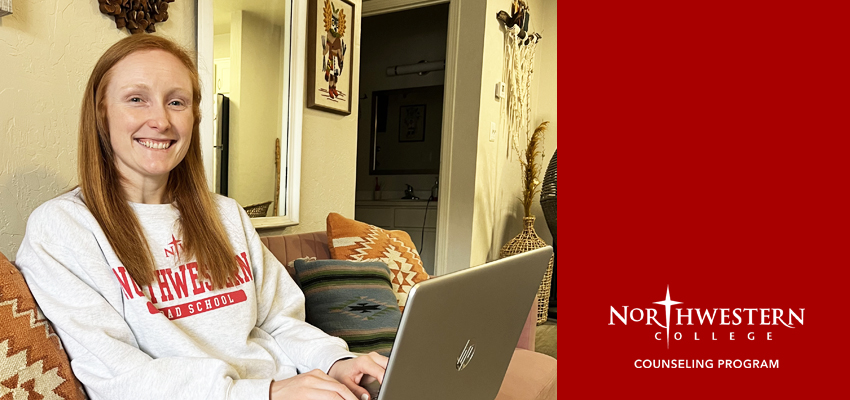
Are you considering starting your master's degree, but it never feels like quite the right time?
Are you a current graduate student wondering, can I really manage this all? Michaela shares her experience in the M.A. in Counseling program – and encouragement to go for it!
A Note for Graduate Students–You Can Do It!
If you’re reading this and questioning if it’s the right move, the right time, or the right place to begin a master’s program, take this as your sign to say YES to a wonderful and unexpected adventure.
My name is Michaela and I’m a graduate student in Northwestern’s Clinical Mental Health Counseling program. Before I officially began this journey I already worked full-time, coached high school soccer, and was a social individual. My biggest fear was not having the time or energy to survive the program.
"My mindset began to shift from “IF I finish this program” to “WHEN I finish the program"
Here’s the thing though – when you feel a strong sense of calling for your life, you’ll do whatever it takes to make it happen. While it was an adjustment in the beginning, I have learned how to balance work, my social life, and school so it feels like a perfect fit. On top of that, the nature of the program (exclusively online) has allowed me even more opportunities to tweak my schedule as needed and still complete assignments each week. My mindset began to shift from “IF I finish this program” to “WHEN I finish the program.”
I cannot say enough good things about Northwestern, my professors and classmates, and my overall experience in the counseling program so far. The amount of support I receive each week from others in the program is astounding and it keeps me motivated to work toward my goals. So, if you’re still wondering, say YES today. Start your journey now. You will not regret it.
Posted on
Enrolling in college is a huge step—whether it’s transferring to complete your degree or returning to school after some (or much!) time away. The transition to completing homework and writing papers on a regular basis can be intimidating at first. Thankfully, you are not alone in making the transition to academic life.
Academic support is available to those who need it. As a writing tutor at Northwestern, I have had the opportunity to help students in an online nursing course. While tutoring looks a little different online, we are here to walk alongside you to help you succeed.
Receiving feedback will be a different process than face-to-face interaction. However, the quality of support will remain the same, and tutors will go out of their way to help as much as they possibly can.
When asking for help, students will typically send an electronic copy of their paper via email. Depending on tutor and student availability, a time can then be set up to discuss the paper. Tutors aren’t there just to provide constructive criticism; we will also help you to capitalize on your strengths and grow more confident in whatever subject you’re working in.
In the past, I have done Skype meetings or phone calls. In-document comments are also provided so students can more easily remember the comments discussed. From there, any further questions can be discussed via email, phone call, or Skype. Tutors are willing to help and work to meet your schedule demands.
While college or grad school can seem demanding, you are not alone. Whatever class you’re concerned with, from math and chemistry to writing, support is available. The tutors are willing to work with your schedule to provide you with the best feedback possible. For more information about tutoring services, contact your Northwestern academic advisor.

Meet the Author
Nicole is an English Teaching major at Northwestern. She serves as the Blog Coordinator and writing tutor for the Graduate School and Adult Learning. As a writing tutor, she is already preparing for her career goals of teaching 8th, 9th, or 12 grade English.
Nicole also has a passion for social justice and young adult literature.
